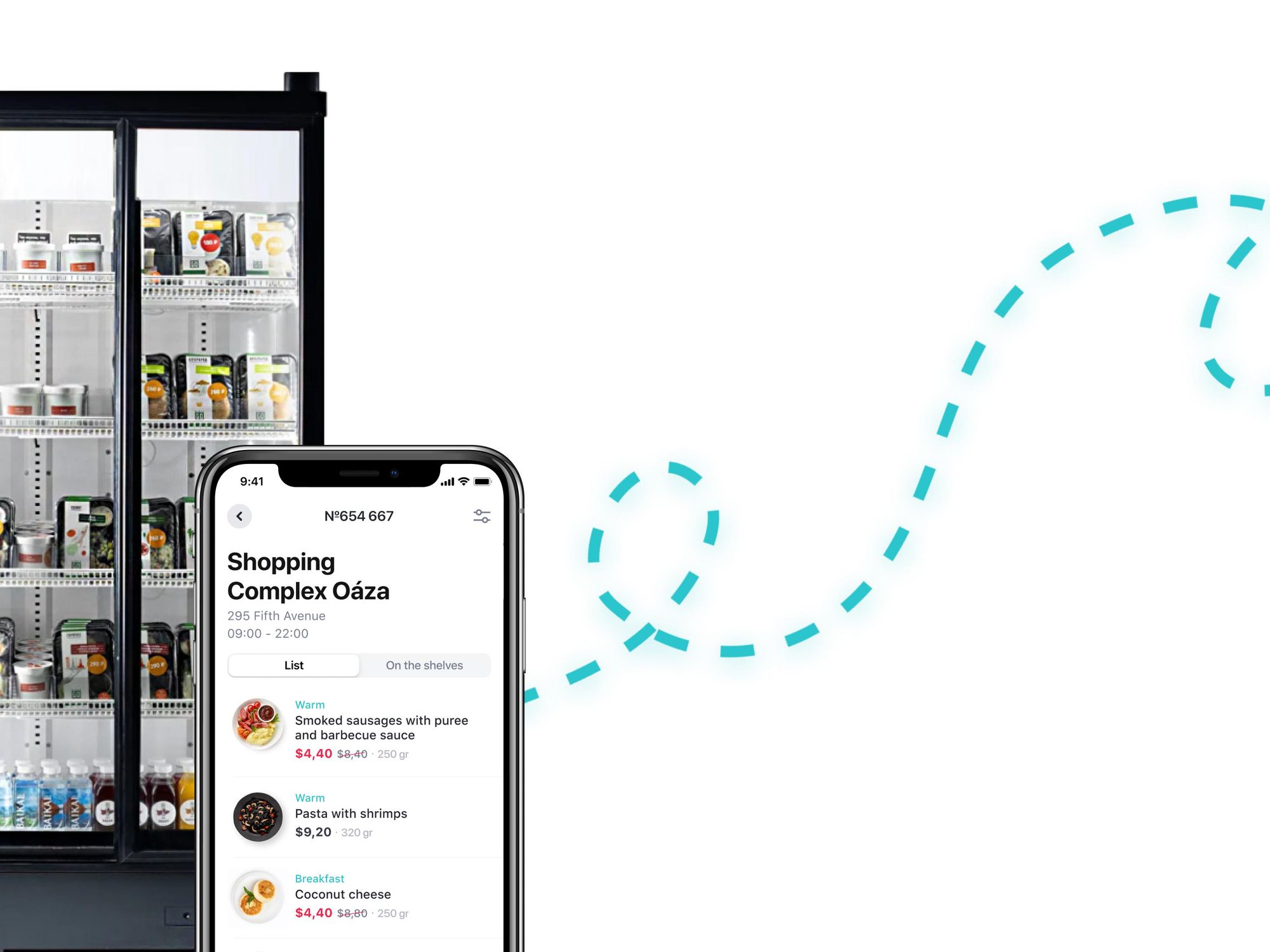FooDoo Will Soon Test AI-Based 'Micro-Stores' in South LA
Decerry Donato is a reporter at dot.LA. Prior to that, she was an editorial fellow at the company. Decerry received her bachelor's degree in literary journalism from the University of California, Irvine. She continues to write stories to inform the community about issues or events that take place in the L.A. area. On the weekends, she can be found hiking in the Angeles National forest or sifting through racks at your local thrift store.

On average, Americans waste 108 billion pounds of food, which equates to 130 billion meals that is thrown away each year, according to Feeding America.
Los Angeles-based FooDoo is looking to reduce that waste in the Grab & Go market with its hardware kit technology that is installed in FooDoo’s vending refrigerators. The AI-based microstores, as FooDoo refers to them, can store up to 500 items and are set to launch in Los Angeles this September. In preparation, the company has teamed up with several ghost kitchens across the city that will cook ready-to-eat meals to be stored in FooDoo’s fridges.
Founded in 2021 by CEO Kirill Sizyumov and CPO Nikita Makarov, and CTO Ivan Gurkin, the company was bootstrapped by Sizyumov and now has a few angel investors that believe in FooDoo’s technology.
Once a dish is produced by the ghost kitchens and stocked, a radio-frequency identification (RFID) tag is attached and all the information about the meal, including the name, its ingredients and its expiration date, is linked to the tag. This information is sent to FooDoo’s data center and will allow the team to track the products where its scanners are installed.
Sizyumov said FooDoo has two issued patents, one is for the system for data transfer between server, and remote vending machine, and computing device of the user; and the second is for vending machines with RFID antennas. In addition to these, the startup has three more pending patents and are waiting to get those issued by this fall.
The hardware installed in each microstore consists of readers and scanners that will track the products and take stock of what is still inside. FooDoo’s technology allows the team to forecast user demands, and provide the ghost kitchens that provide meals with an accurate production plan for the next week.
“We want to make an impact,” Makarov said. “We want to provide people with much more food at high quality, but for the minimum price.”
With 7.7% of Americans still working at home, according to a Bureau of Labor Statistics survey, Makarov said the company is targeting multifamily buildings which will give people the opportunity to have a fresh meal in just a few minutes. It will cost $100 a month to have FooDoo’s microstores at these facilities. Instead of waiting for your Postmates or GrubHub delivery to arrive, tenants can walk to the microstore and purchase a meal of their choice.
“During the work week, [many people] don't have an additional hour or two to wait for the delivery app,” Makarov told dot.LA. “So we are a good alternative.”
As soon as a microstore is installed, residents or any guests that want to make a purchase must download the FooDoo app, which will be available for free in the Google Play and Apple Store, where customers must link their form of payment. The app on your phone will act as a key that can unlock the sliding door and give access to the meals. Once an item has been taken, the app will automatically charge the user based on the preferred payment method they linked.
While many food-tech startups have popped up like those selling expiring food at a discounted rate, Makarov said that these companies are working with the consequences of overproduction, whereas FooDoo is trying to tackle it from the very start, which is in production planning.
- Los Angeles Food and Beverage Startup News - dot.LA ›
- Chipotle Unveils New $50 Million Food Tech Venture Fund - dot.LA ›
Decerry Donato is a reporter at dot.LA. Prior to that, she was an editorial fellow at the company. Decerry received her bachelor's degree in literary journalism from the University of California, Irvine. She continues to write stories to inform the community about issues or events that take place in the L.A. area. On the weekends, she can be found hiking in the Angeles National forest or sifting through racks at your local thrift store.





 Image Source: Skyryse
Image Source: Skyryse